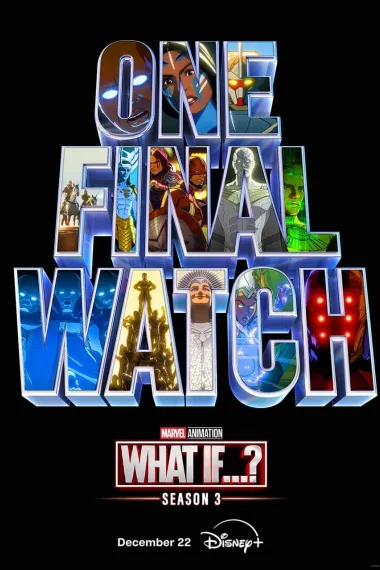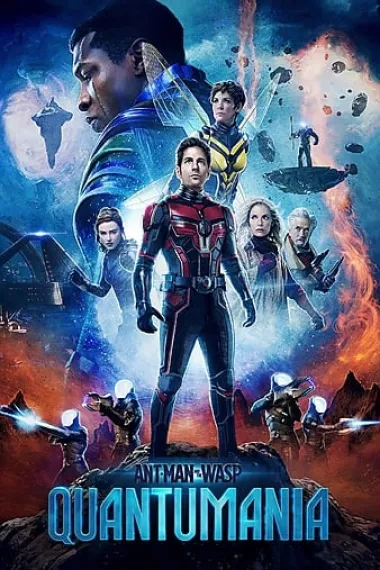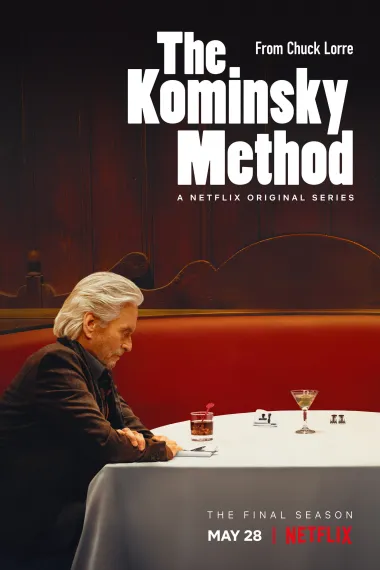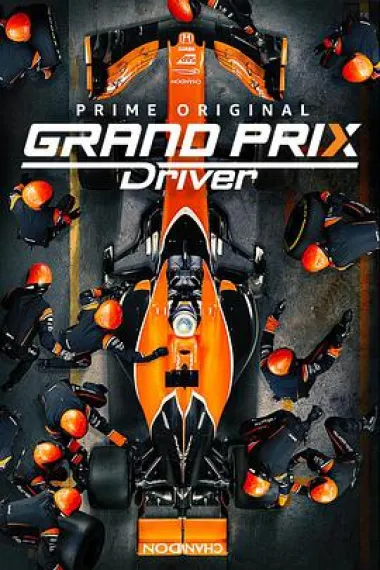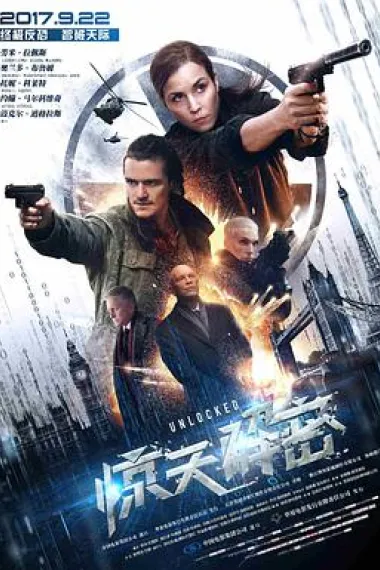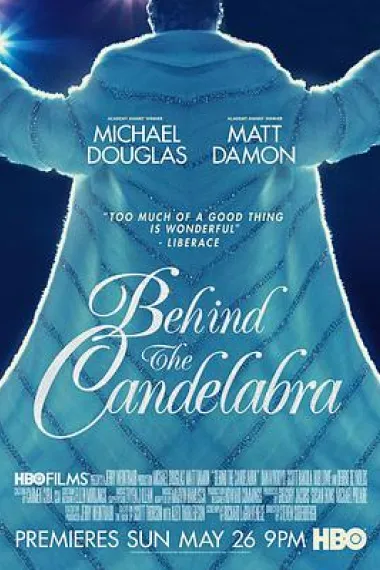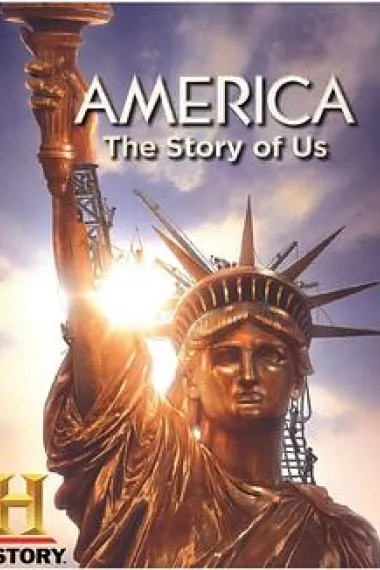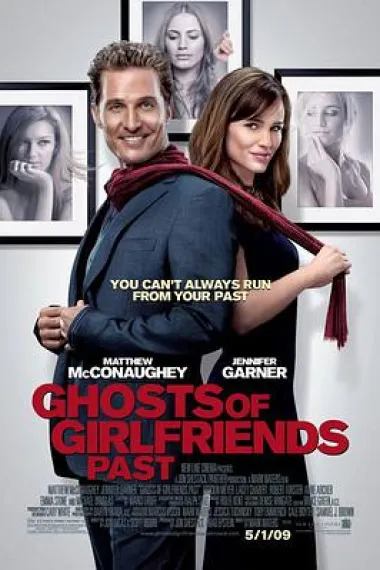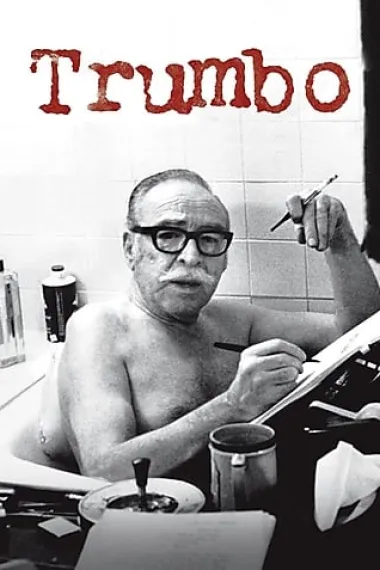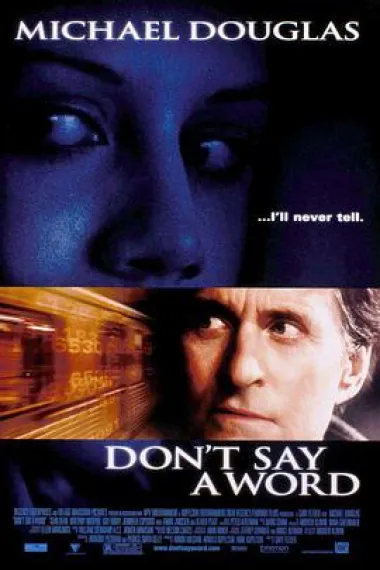
迈克尔·道格拉斯 (1944) Michael Douglas
演员 制片人 导演 编剧 配音
A legendary actor with 50 celebrated years of film, television and producing experience, Michael Douglas is known for his era-defining roles and enduring cultural impact.
In addition to his career accomplishments, Douglas has remained a steadfast public servant, activist and philanthropist dedicated to peace and human welfare, democracy, gun control advocacy, support of the arts and support of nuclear disarmament. In 1998, former United Nations Secretary-General Kofi Annan appointed Douglas as a Messenger of Peace for his commitment on disarmament issues, including nuclear non-proliferation and halting the illicit trade in small arms and light weapons.
Since his earliest acting work on Hail, Hero! (1969) and The Streets of San Francisco (1972) Douglas has played some of the most memorable and enigmatic American anti-heroes of the last half century. He is most known for his iconic screen roles, like his Academy Award-winning turn as Gordon Gekko Wall Street (1987) as well as the critically and commercially acclaimed films Fatal Attraction (1987), The American President (1995), Basic Instinct (1992), Traffic (2000) and Romancing the Stone (1984). He is also a prolific producer with credits on politically relevant and socially influential motion pictures like One Flew Over the Cuckoo's Nest (1975), The China Syndrome (1979), Traffic (2000) the television series: The Kominsky Method (2018) and an upcoming limited series where Douglas portrays Benjamin Franklin (2024) during his nine years in France lobbying for French aid for the American Revolution.
With a passion for complex protagonists and darkly humorous undercurrents, Douglas has received numerous accolades for his work, including two Academy Awards, five Golden Globe Awards, a Primetime Emmy Award, AFI Life Achievement Award, two French César Awards for Career Achievement and, most recently, the Palme d'or d'honneur for lifetime achievement at the 76th Annual Festival de Cannes as well as the Satyajit Ray Lifetime Achievement Award for Excellence in Cinema at the Goa Film Festival in India.
Michael Douglas was born in New Brunswick, New Jersey, to actors Diana Douglas (Diana Love Dill) and Kirk Douglas (born Issur Danielovitch). His paternal grandparents were Belarusian Jewish immigrants, while his mother was born in Bermuda, the daughter of a local Attorney General, Lieutenant Colonel Thomas Melville Dill; Diana's family had long been established in both Bermuda and the United States. Douglas's parents divorced when he was six, and he went to live with his mother and her new husband. Only seeing Kirk on holidays, Michael attended Eaglebrook School in Deerfield, Massachusetts, where he was about a year younger than all of his classmates.
Douglas attended the elite preparatory Choate School and spent his summers with his father on movie sets. Although accepted at Yale, Douglas attended the University of California, Santa Barbara. Deciding he wanted to be an actor in his teenage years, Michael often asked his father about getting a "foot in the door" Kirk was strongly opposed to Michael pursuing an acting career, saying that it was an industry with many downs and few ups, and that he wanted all four of his sons to stay out of it. Michael, however, was persistent, and made his film debut in his father's film Cast a Giant Shadow (1966).
After receiving his B.A. degree in 1968, Douglas moved to New York City to continue his dramatic training, studying at the American Place Theatre with Wynn Handman, and at the Neighborhood Playhouse, where he appeared in workshop productions of Pirandello's Six Characters in Search of an Author (1976) and Thornton Wilder's Happy Journey (1963). A few months after he arrived in New York, Douglas got his first big break, when he was cast in the pivotal role of the free-spirited scientist who compromises his liberal views to accept a lucrative job with a high-tech chemical corporation in the CBS Playhouse production of Ellen M. Violett's drama, The Experiment, which was televised nationwide on February 25, 1969.
Douglas' convincing portrayal won him the leading role in the adaptation of John Weston's controversial novel, Hail, Hero! (1969), which was the initial project of CBS's newly organized theatrical film production company, Cinema Center Films. Douglas starred as a well-meaning, almost saintly young pacifist determined not only to justify his beliefs to his conservative parents but also to test them under fire in the jungles of Indochina. His second feature, Adam at Six A.M. (1970) concerned a young man's search for his roots. Douglas next appeared in the film version of Ron Cowen's play Summertree (1971), produced by 'Kirk Douglas'' Bryna Company, and then Napoleon and Samantha (1972), a sentimental children's melodrama from the Walt Disney studio.
In between film assignments, he worked in summer stock and off-Broadway productions, among them "City Scenes," Frank Gagliano's surrealistic vignettes of contemporary life in New York, John Patrick Shanley's short-lived romance "Love is a Time of Day" and George Tabori's "Pinkville," in which he played a young innocent brutalized by his military training. He also appeared in the made-for-television thriller, "When Michael Calls," broadcast by ABC-TV on February 5, 1972 and in episodes of the popular series "Medical Center" and "The F.B.I."
Impressed by Douglas' performance in a segment of The F.B.I. (1965), producer 'Quinn Martin' signed the actor for the part of Karl Malden's sidekick in the police series "The Streets of San Francisco", which premiered in September 1972 and became one of ABC's highest-rated prime-time programs in the mid-1970s. Douglas earned three successive Emmy Award nominations for his performance and he directed two episodes of the series.
During the annual breaks in the shooting schedule for The Streets of San Francisco (1972), Douglas devoted most of his time to his film production company, Big Stick Productions, Ltd., which produced several short subjects in the early 1970s. Long interested in producing a film version of Ken Kesey's grimly humorous novel One Flew Over the Cuckoo's Nest (1975), Douglas purchased the movie rights from his father and began looking for financial backing. After a number of major motion picture studios turned him down, Douglas formed a partnership with Saul Zaentz, a record industry executive, and the two set about recruiting the cast and crew. Douglas still had a year to go on his contract for "The Streets of San Francisco," but the producers agreed to write his character out of the story so that he could concentrate on filming "Cuckoo's Nest."
A critical and commercial success, One Flew Over the Cuckoo's Nest (1975) won five Academy Awards, including Best Picture, Best Director, Best Screenplay, Best Actor and Best Actress, and went on to gross more than $180 million at the box office. Douglas suddenly found himself in demand as an independent producer. One of the many scripts submitted to him for consideration was Mike Gray's chilling account of the attempted cover-up of an accident at a nuclear power plant. Attracted by the combination of social relevance and suspense, Douglas immediately bought the property. Deemed not commercial by most investors, Douglas teamed up with Jane Fonda and her own motion picture production company, IPC Films.
A Michael Douglas-IPC Films co-production, The China Syndrome (1979) starred Jack Lemmon, Jane Fonda, and Michael Douglas and received Academy Award nominations for Lemmon and Fonda, as well as for Best Screenplay. The National Board of Review named the film one of the best films of the year.
Despite his success as a producer, Douglas resumed his acting career in the late 1970s, starring in Michael Crichton's medical thriller Coma (1978) with Genevieve Bujold, Claudia Weill's feminist comedy It's My Turn (1980) starring Jill Clayburgh, and Peter Hyams' gripping tale of modern-day vigilante justice, "The Star Chamber" (1983). Douglas also starred in Running (1979), as a compulsive quitter who sacrifices everything to take one last shot at the Olympics, and as Zach the dictatorial director/choreographer in Richard Attenborough's screen version of the Broadway's longest running musical A Chorus Line (1985).
Douglas' career as an actor/producer came together again in 1984 with the release of the tongue-in-cheek romantic fantasy "Romancing the Stone." Douglas had begun developing the project several years earlier, and with Kathleen Turner as Joan Wilder, the dowdy writer of gothic romances, Danny DeVito as the feisty comic foil Ralphie and Douglas as Jack Colton, the reluctant soldier of fortune. "Romancing the Stone" was a resounding hit and grossed more than $100 million at the box office. Douglas was named Producer of the Year in 1984 by the National Association of Theater Owners. Douglas, Turner and DeVito teamed up in 1985 for the successful sequel The Jewel of the Nile (1985).
It took Douglas nearly two years to convince Columbia Pictures executives to approve the production of Starman (1984), an unlikely tale of romance between an extraterrestrial, played by Jeff Bridges, and a young widow, played by Karen Allen. Starman (1984) was the sleeper hit of the 1984 Christmas season and earned an Oscar nomination for Best Actor for Jeff Bridges. In 1986 Douglas created a television series based on the film for ABC which starred Robert Hays.
After a lengthy break from acting, Douglas returned to the screen in 1987 appearing in two of the year's biggest hits. He starred opposite Glenn Close in the phenomenally successful psychological thriller, "Fatal Attraction," which was followed by his performance as ruthless corporate raider Gordon Gekko in Oliver Stone's Wall Street (1987), earning him the Academy Award for Best Actor.
Douglas next starred in Ridley Scott's thriller Black Rain (1989) and then teamed up again with Kathleen Turner and Danny DeVito in the black comedy The War of the Roses (1989).
In 1988, Douglas formed Stonebridge Entertainment, Inc., which produced Flatliners (1990), directed by Joel Schumacher and starred Kiefer Sutherland, Julia Roberts, Kevin Bacon and William Baldwin and Radio Flyer (1992) starring Lorraine Bracco and directed by Richard Donner. Douglas followed with David Seltzer's adaptation of Susan Isaacs' best-selling novel, "Shining Through," opposite Melanie Griffith. In 1992 he starred with Sharon Stone in the erotic thriller from Paul Verhoeven Basic Instinct (1992), one of the year's top grossing films.
Douglas gave one of his most powerful performances opposite Robert Duvall in Joel Schumacher's controversial drama Falling Down (1993). That year he also produced the hit comedy "Made in America" starring Whoopi Goldberg, Ted Danson and Will Smith. In 1994-95 he starred with Demi Moore in Barry Levinson's "Disclosure," based on the best seller by Michael Crichton. In 1995, Douglas portrayed the title role in Rob Reiner's romantic comedy The American President (1995) opposite Annette Bening, and in 1997, starred in The Game (1997) directed by David Fincher and co-starring Sean Penn.
Douglas formed Douglas/Reuther Productions with partner Steven Reuther in May 1994. The company, under the banner of Constellation Films, produced The Ghost and the Darkness (1996), starring Douglas and Val Kilmer, and John Grisham's The Rainmaker (1997), based on John Grisham's best selling novel, directed by Francis Ford Coppola and starring Matt Damon,Claire Danes, Danny DeVito, Jon Voight, Mickey Rourke, Mary Kay Place, Virginia Madsen, Andrew Shue, Teresa Wright, Johnny Whitworth and Randy Travis.
Michael Douglas and Steve Reuther also produced John Woo's action thriller Face/Off (1997) starring John Travolta and Nicolas Cage, which proved to be one of '97's major hits.
In 1998, Michael Douglas starred with Gwyneth Paltrow and Viggo Mortensen in the mystery thriller A Perfect Murder (1998), and formed a new production company, Furthur Films. 2000 was a milestone year for Douglas. "Wonder Boys" opened in February 2000 to much critical acclaim. Directed by Curtis Hanson and co-starring Tobey Maguire, Frances McDormand, Robert Downey Jr. and Katie Holmes, Douglas starred in the film as troubled college professor Grady Tripp. Michael was nominated for a Golden Globe and a BAFTA Film Award for his performance.
"Traffic" was released by USA Films on December 22, 2000 in New York and Los Angeles and went nationwide in January 2001. Douglas played the role of Robert Wakefield, a newly appointed drug czar confronted by the drug war both at home and abroad. Directed by Steven Soderbergh and co-starring Don Cheadle, Benicio del Toro, Amy Irving, Dennis Quaid and Catherine Zeta-Jones, "Traffic" was named Best Picture by New York Film Critics, won Best Ensemble Cast at the SAG Awards, won four Academy Awards (Best Screenplay, Best Editing, Best Director, and Best Supporting Actor for Benicio del Toro) and has been recognized on more than 175 top ten lists.
In 2001, Douglas produced and played a small role in USA Films' outrageous comedy "One Night at McCool's" starring Liv Tyler, Matt Dillon, John Goodman and Paul Reiser and directed by Harald Zwart. "McCool's" was the first film by Douglas' company Furthur Films. Also in 2001, Douglas starred in "Don't Say A Word" for 20th Century Fox. The psychological thriller, directed by Gary Fleder, also starred Sean Bean, Famke Janseen and Brittany Murphy.
In 2002, Douglas appeared in a guest role on the hit NBC comedy "Will & Grace," and received an Emmy Nomination for his performance.
Douglas starred in two films in 2003. MGM/BVI released the family drama "It Runs in the Family," which Douglas produced and starred with his father Kirk Douglas, his mother Diana Douglas his son Cameron Douglas, Rory Culkin and Bernadette Peters. He also starred in the Warner Bros. comedy "The-In Laws," with Albert Brooks, Candice Bergen and Ryan Reynolds.
In 2004, Douglas, along with his father Kirk, filmed the intimate HBO documentary "A Father, A Son... Once Upon a Time in Hollywood". Directed by award-winning filmmaker Lee Grant, the documentary examines the professional and personal lives of both men, and the impacts they each made on the motion picture industry.
In 2005, Douglas produced and starred in "The Sentinel", which was released by 20th Century Fox in April 2006. Based on the Gerald Petievich novel and directed by Clark Johnson, "The Sentinel" is a political thriller set in the intriguing world of the Secret Service. Douglas stars with Keifer Sutherland, Eva Longoria and Kim Bassinger. Douglas then filmed "You, Me & Dupree," starring with Owen Wilson, Kate Hudson and Matt Dillon. The comedy, directed by Anthony and Joe Russo, was released by Universal Pictures during the summer of 2006. In 2007 Douglas made "King of California," co-starring Evan Rachel Wood and is written and directed by Michael Cahill, and produced by Alexander Payne and Michael London.
Michael had two films released in early 2009, "Beyond A Reasonable Doubt" directed by Peter Hyams and "Ghosts of Girlfriends Past" starring Matthew McConaughey and Jennifer Garner and directed by Mark Waters. He followed with the drama "Solitary Man" directed by Brian Koppelman and David Levien, co-starring Susan Sarandon, Danny DeVito, Mary Louise-Parker, and Jenna Fischer, produced by Paul Schiff and Steven Soderbergh. In 2010, Douglas reprised his Oscar-winning role as Gordon Gekko in "Wall Street 2: Money Never Sleeps," earning a Golden Globe for his performance. Again directed by Oliver Stone, he co-starred with Shia Labeouf, Cary Mulligan, Josh Brolin, Frank Langella and Susan Sarandon.
In 2011, Douglas had a cameo role in Steven Soderbergh's action thriller "Haywire."
"Behind the Candelabra," based on the life of '70's/80's musical icon Liberace and his partner Scott Thorson, directed by Steven Soderbergh and costarring Matt Damon, premiered on HBO in May 2013. Douglas won an Emmy, Golden Globe and SAG Award for Best Actor in a television movie or mini series for his performance as the famed entertainer. He followed with the buddy comedy "Last Vegas," directed by John Turtletaub co-starring Robert DeNiro, Morgan Freeman and Kevin Kline and the romantic comedy "And So It Goes," co-starring Diane Keaton directed by Rob Reiner.
Douglas recently starred in and produced the thriller "Beyond The Reach," directed by Jean-Baptiste Leonetti and costarring Jeremy Irvine. He and portrayed Dr. Hank Pym in Marvel's Ant-Man and the Wasp (2018) and Ant-Man and the Wasp: Quantumania (2023) opposite Paul Rudd. The franchise was his first venture into the realm of comic book action adventure.
In 2017, he starred in the spy thriller "Unlocked" starring with Noomi Rapace, Orlando Bloom, John Malkovich and directed by Michael Apted.
In 1998 Douglas was made a United Nations Messenger of Peace by Kofi Annan. His main concentrations are nuclear non-proliferation and the control of small arms. He is on the Board of Ploughshares Foundation and The Nuclear Threat Initiative.
Michael Douglas was recipient of the 2009 AFI Lifetime Achievement as well as the Producers Guild Award that year. In Spring '10 he received the New York Film Society's Charlie Chaplin Award.
Douglas has hosted 11 years of "Michael Douglas and Friends" Celebrity Golf Event which has raised over $6 million for the Motion Picture and Television Fund. Douglas is very passionate about the organization, and each year he asks his fellow actors and to come out and show that "we are an industry that takes care of own".
Douglas is married to Catherine Zeta-Jones. The couple has one son, Dylan, and one daughter, Carys. Douglas also has one son, Cameron, from a previous marriage.
In addition to his career accomplishments, Douglas has remained a steadfast public servant, activist and philanthropist dedicated to peace and human welfare, democracy, gun control advocacy, support of the arts and support of nuclear disarmament. In 1998, former United Nations Secretary-General Kofi Annan appointed Douglas as a Messenger of Peace for his commitment on disarmament issues, including nuclear non-proliferation and halting the illicit trade in small arms and light weapons.
Since his earliest acting work on Hail, Hero! (1969) and The Streets of San Francisco (1972) Douglas has played some of the most memorable and enigmatic American anti-heroes of the last half century. He is most known for his iconic screen roles, like his Academy Award-winning turn as Gordon Gekko Wall Street (1987) as well as the critically and commercially acclaimed films Fatal Attraction (1987), The American President (1995), Basic Instinct (1992), Traffic (2000) and Romancing the Stone (1984). He is also a prolific producer with credits on politically relevant and socially influential motion pictures like One Flew Over the Cuckoo's Nest (1975), The China Syndrome (1979), Traffic (2000) the television series: The Kominsky Method (2018) and an upcoming limited series where Douglas portrays Benjamin Franklin (2024) during his nine years in France lobbying for French aid for the American Revolution.
With a passion for complex protagonists and darkly humorous undercurrents, Douglas has received numerous accolades for his work, including two Academy Awards, five Golden Globe Awards, a Primetime Emmy Award, AFI Life Achievement Award, two French César Awards for Career Achievement and, most recently, the Palme d'or d'honneur for lifetime achievement at the 76th Annual Festival de Cannes as well as the Satyajit Ray Lifetime Achievement Award for Excellence in Cinema at the Goa Film Festival in India.
Michael Douglas was born in New Brunswick, New Jersey, to actors Diana Douglas (Diana Love Dill) and Kirk Douglas (born Issur Danielovitch). His paternal grandparents were Belarusian Jewish immigrants, while his mother was born in Bermuda, the daughter of a local Attorney General, Lieutenant Colonel Thomas Melville Dill; Diana's family had long been established in both Bermuda and the United States. Douglas's parents divorced when he was six, and he went to live with his mother and her new husband. Only seeing Kirk on holidays, Michael attended Eaglebrook School in Deerfield, Massachusetts, where he was about a year younger than all of his classmates.
Douglas attended the elite preparatory Choate School and spent his summers with his father on movie sets. Although accepted at Yale, Douglas attended the University of California, Santa Barbara. Deciding he wanted to be an actor in his teenage years, Michael often asked his father about getting a "foot in the door" Kirk was strongly opposed to Michael pursuing an acting career, saying that it was an industry with many downs and few ups, and that he wanted all four of his sons to stay out of it. Michael, however, was persistent, and made his film debut in his father's film Cast a Giant Shadow (1966).
After receiving his B.A. degree in 1968, Douglas moved to New York City to continue his dramatic training, studying at the American Place Theatre with Wynn Handman, and at the Neighborhood Playhouse, where he appeared in workshop productions of Pirandello's Six Characters in Search of an Author (1976) and Thornton Wilder's Happy Journey (1963). A few months after he arrived in New York, Douglas got his first big break, when he was cast in the pivotal role of the free-spirited scientist who compromises his liberal views to accept a lucrative job with a high-tech chemical corporation in the CBS Playhouse production of Ellen M. Violett's drama, The Experiment, which was televised nationwide on February 25, 1969.
Douglas' convincing portrayal won him the leading role in the adaptation of John Weston's controversial novel, Hail, Hero! (1969), which was the initial project of CBS's newly organized theatrical film production company, Cinema Center Films. Douglas starred as a well-meaning, almost saintly young pacifist determined not only to justify his beliefs to his conservative parents but also to test them under fire in the jungles of Indochina. His second feature, Adam at Six A.M. (1970) concerned a young man's search for his roots. Douglas next appeared in the film version of Ron Cowen's play Summertree (1971), produced by 'Kirk Douglas'' Bryna Company, and then Napoleon and Samantha (1972), a sentimental children's melodrama from the Walt Disney studio.
In between film assignments, he worked in summer stock and off-Broadway productions, among them "City Scenes," Frank Gagliano's surrealistic vignettes of contemporary life in New York, John Patrick Shanley's short-lived romance "Love is a Time of Day" and George Tabori's "Pinkville," in which he played a young innocent brutalized by his military training. He also appeared in the made-for-television thriller, "When Michael Calls," broadcast by ABC-TV on February 5, 1972 and in episodes of the popular series "Medical Center" and "The F.B.I."
Impressed by Douglas' performance in a segment of The F.B.I. (1965), producer 'Quinn Martin' signed the actor for the part of Karl Malden's sidekick in the police series "The Streets of San Francisco", which premiered in September 1972 and became one of ABC's highest-rated prime-time programs in the mid-1970s. Douglas earned three successive Emmy Award nominations for his performance and he directed two episodes of the series.
During the annual breaks in the shooting schedule for The Streets of San Francisco (1972), Douglas devoted most of his time to his film production company, Big Stick Productions, Ltd., which produced several short subjects in the early 1970s. Long interested in producing a film version of Ken Kesey's grimly humorous novel One Flew Over the Cuckoo's Nest (1975), Douglas purchased the movie rights from his father and began looking for financial backing. After a number of major motion picture studios turned him down, Douglas formed a partnership with Saul Zaentz, a record industry executive, and the two set about recruiting the cast and crew. Douglas still had a year to go on his contract for "The Streets of San Francisco," but the producers agreed to write his character out of the story so that he could concentrate on filming "Cuckoo's Nest."
A critical and commercial success, One Flew Over the Cuckoo's Nest (1975) won five Academy Awards, including Best Picture, Best Director, Best Screenplay, Best Actor and Best Actress, and went on to gross more than $180 million at the box office. Douglas suddenly found himself in demand as an independent producer. One of the many scripts submitted to him for consideration was Mike Gray's chilling account of the attempted cover-up of an accident at a nuclear power plant. Attracted by the combination of social relevance and suspense, Douglas immediately bought the property. Deemed not commercial by most investors, Douglas teamed up with Jane Fonda and her own motion picture production company, IPC Films.
A Michael Douglas-IPC Films co-production, The China Syndrome (1979) starred Jack Lemmon, Jane Fonda, and Michael Douglas and received Academy Award nominations for Lemmon and Fonda, as well as for Best Screenplay. The National Board of Review named the film one of the best films of the year.
Despite his success as a producer, Douglas resumed his acting career in the late 1970s, starring in Michael Crichton's medical thriller Coma (1978) with Genevieve Bujold, Claudia Weill's feminist comedy It's My Turn (1980) starring Jill Clayburgh, and Peter Hyams' gripping tale of modern-day vigilante justice, "The Star Chamber" (1983). Douglas also starred in Running (1979), as a compulsive quitter who sacrifices everything to take one last shot at the Olympics, and as Zach the dictatorial director/choreographer in Richard Attenborough's screen version of the Broadway's longest running musical A Chorus Line (1985).
Douglas' career as an actor/producer came together again in 1984 with the release of the tongue-in-cheek romantic fantasy "Romancing the Stone." Douglas had begun developing the project several years earlier, and with Kathleen Turner as Joan Wilder, the dowdy writer of gothic romances, Danny DeVito as the feisty comic foil Ralphie and Douglas as Jack Colton, the reluctant soldier of fortune. "Romancing the Stone" was a resounding hit and grossed more than $100 million at the box office. Douglas was named Producer of the Year in 1984 by the National Association of Theater Owners. Douglas, Turner and DeVito teamed up in 1985 for the successful sequel The Jewel of the Nile (1985).
It took Douglas nearly two years to convince Columbia Pictures executives to approve the production of Starman (1984), an unlikely tale of romance between an extraterrestrial, played by Jeff Bridges, and a young widow, played by Karen Allen. Starman (1984) was the sleeper hit of the 1984 Christmas season and earned an Oscar nomination for Best Actor for Jeff Bridges. In 1986 Douglas created a television series based on the film for ABC which starred Robert Hays.
After a lengthy break from acting, Douglas returned to the screen in 1987 appearing in two of the year's biggest hits. He starred opposite Glenn Close in the phenomenally successful psychological thriller, "Fatal Attraction," which was followed by his performance as ruthless corporate raider Gordon Gekko in Oliver Stone's Wall Street (1987), earning him the Academy Award for Best Actor.
Douglas next starred in Ridley Scott's thriller Black Rain (1989) and then teamed up again with Kathleen Turner and Danny DeVito in the black comedy The War of the Roses (1989).
In 1988, Douglas formed Stonebridge Entertainment, Inc., which produced Flatliners (1990), directed by Joel Schumacher and starred Kiefer Sutherland, Julia Roberts, Kevin Bacon and William Baldwin and Radio Flyer (1992) starring Lorraine Bracco and directed by Richard Donner. Douglas followed with David Seltzer's adaptation of Susan Isaacs' best-selling novel, "Shining Through," opposite Melanie Griffith. In 1992 he starred with Sharon Stone in the erotic thriller from Paul Verhoeven Basic Instinct (1992), one of the year's top grossing films.
Douglas gave one of his most powerful performances opposite Robert Duvall in Joel Schumacher's controversial drama Falling Down (1993). That year he also produced the hit comedy "Made in America" starring Whoopi Goldberg, Ted Danson and Will Smith. In 1994-95 he starred with Demi Moore in Barry Levinson's "Disclosure," based on the best seller by Michael Crichton. In 1995, Douglas portrayed the title role in Rob Reiner's romantic comedy The American President (1995) opposite Annette Bening, and in 1997, starred in The Game (1997) directed by David Fincher and co-starring Sean Penn.
Douglas formed Douglas/Reuther Productions with partner Steven Reuther in May 1994. The company, under the banner of Constellation Films, produced The Ghost and the Darkness (1996), starring Douglas and Val Kilmer, and John Grisham's The Rainmaker (1997), based on John Grisham's best selling novel, directed by Francis Ford Coppola and starring Matt Damon,Claire Danes, Danny DeVito, Jon Voight, Mickey Rourke, Mary Kay Place, Virginia Madsen, Andrew Shue, Teresa Wright, Johnny Whitworth and Randy Travis.
Michael Douglas and Steve Reuther also produced John Woo's action thriller Face/Off (1997) starring John Travolta and Nicolas Cage, which proved to be one of '97's major hits.
In 1998, Michael Douglas starred with Gwyneth Paltrow and Viggo Mortensen in the mystery thriller A Perfect Murder (1998), and formed a new production company, Furthur Films. 2000 was a milestone year for Douglas. "Wonder Boys" opened in February 2000 to much critical acclaim. Directed by Curtis Hanson and co-starring Tobey Maguire, Frances McDormand, Robert Downey Jr. and Katie Holmes, Douglas starred in the film as troubled college professor Grady Tripp. Michael was nominated for a Golden Globe and a BAFTA Film Award for his performance.
"Traffic" was released by USA Films on December 22, 2000 in New York and Los Angeles and went nationwide in January 2001. Douglas played the role of Robert Wakefield, a newly appointed drug czar confronted by the drug war both at home and abroad. Directed by Steven Soderbergh and co-starring Don Cheadle, Benicio del Toro, Amy Irving, Dennis Quaid and Catherine Zeta-Jones, "Traffic" was named Best Picture by New York Film Critics, won Best Ensemble Cast at the SAG Awards, won four Academy Awards (Best Screenplay, Best Editing, Best Director, and Best Supporting Actor for Benicio del Toro) and has been recognized on more than 175 top ten lists.
In 2001, Douglas produced and played a small role in USA Films' outrageous comedy "One Night at McCool's" starring Liv Tyler, Matt Dillon, John Goodman and Paul Reiser and directed by Harald Zwart. "McCool's" was the first film by Douglas' company Furthur Films. Also in 2001, Douglas starred in "Don't Say A Word" for 20th Century Fox. The psychological thriller, directed by Gary Fleder, also starred Sean Bean, Famke Janseen and Brittany Murphy.
In 2002, Douglas appeared in a guest role on the hit NBC comedy "Will & Grace," and received an Emmy Nomination for his performance.
Douglas starred in two films in 2003. MGM/BVI released the family drama "It Runs in the Family," which Douglas produced and starred with his father Kirk Douglas, his mother Diana Douglas his son Cameron Douglas, Rory Culkin and Bernadette Peters. He also starred in the Warner Bros. comedy "The-In Laws," with Albert Brooks, Candice Bergen and Ryan Reynolds.
In 2004, Douglas, along with his father Kirk, filmed the intimate HBO documentary "A Father, A Son... Once Upon a Time in Hollywood". Directed by award-winning filmmaker Lee Grant, the documentary examines the professional and personal lives of both men, and the impacts they each made on the motion picture industry.
In 2005, Douglas produced and starred in "The Sentinel", which was released by 20th Century Fox in April 2006. Based on the Gerald Petievich novel and directed by Clark Johnson, "The Sentinel" is a political thriller set in the intriguing world of the Secret Service. Douglas stars with Keifer Sutherland, Eva Longoria and Kim Bassinger. Douglas then filmed "You, Me & Dupree," starring with Owen Wilson, Kate Hudson and Matt Dillon. The comedy, directed by Anthony and Joe Russo, was released by Universal Pictures during the summer of 2006. In 2007 Douglas made "King of California," co-starring Evan Rachel Wood and is written and directed by Michael Cahill, and produced by Alexander Payne and Michael London.
Michael had two films released in early 2009, "Beyond A Reasonable Doubt" directed by Peter Hyams and "Ghosts of Girlfriends Past" starring Matthew McConaughey and Jennifer Garner and directed by Mark Waters. He followed with the drama "Solitary Man" directed by Brian Koppelman and David Levien, co-starring Susan Sarandon, Danny DeVito, Mary Louise-Parker, and Jenna Fischer, produced by Paul Schiff and Steven Soderbergh. In 2010, Douglas reprised his Oscar-winning role as Gordon Gekko in "Wall Street 2: Money Never Sleeps," earning a Golden Globe for his performance. Again directed by Oliver Stone, he co-starred with Shia Labeouf, Cary Mulligan, Josh Brolin, Frank Langella and Susan Sarandon.
In 2011, Douglas had a cameo role in Steven Soderbergh's action thriller "Haywire."
"Behind the Candelabra," based on the life of '70's/80's musical icon Liberace and his partner Scott Thorson, directed by Steven Soderbergh and costarring Matt Damon, premiered on HBO in May 2013. Douglas won an Emmy, Golden Globe and SAG Award for Best Actor in a television movie or mini series for his performance as the famed entertainer. He followed with the buddy comedy "Last Vegas," directed by John Turtletaub co-starring Robert DeNiro, Morgan Freeman and Kevin Kline and the romantic comedy "And So It Goes," co-starring Diane Keaton directed by Rob Reiner.
Douglas recently starred in and produced the thriller "Beyond The Reach," directed by Jean-Baptiste Leonetti and costarring Jeremy Irvine. He and portrayed Dr. Hank Pym in Marvel's Ant-Man and the Wasp (2018) and Ant-Man and the Wasp: Quantumania (2023) opposite Paul Rudd. The franchise was his first venture into the realm of comic book action adventure.
In 2017, he starred in the spy thriller "Unlocked" starring with Noomi Rapace, Orlando Bloom, John Malkovich and directed by Michael Apted.
In 1998 Douglas was made a United Nations Messenger of Peace by Kofi Annan. His main concentrations are nuclear non-proliferation and the control of small arms. He is on the Board of Ploughshares Foundation and The Nuclear Threat Initiative.
Michael Douglas was recipient of the 2009 AFI Lifetime Achievement as well as the Producers Guild Award that year. In Spring '10 he received the New York Film Society's Charlie Chaplin Award.
Douglas has hosted 11 years of "Michael Douglas and Friends" Celebrity Golf Event which has raised over $6 million for the Motion Picture and Television Fund. Douglas is very passionate about the organization, and each year he asks his fellow actors and to come out and show that "we are an industry that takes care of own".
Douglas is married to Catherine Zeta-Jones. The couple has one son, Dylan, and one daughter, Carys. Douglas also has one son, Cameron, from a previous marriage.
